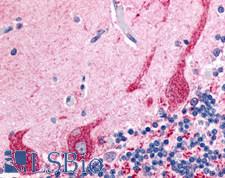Login
Registration enables users to use special features of this website, such as past
order histories, retained contact details for faster checkout, review submissions, and special promotions.
order histories, retained contact details for faster checkout, review submissions, and special promotions.
Forgot password?
Registration enables users to use special features of this website, such as past
order histories, retained contact details for faster checkout, review submissions, and special promotions.
order histories, retained contact details for faster checkout, review submissions, and special promotions.
Quick Order
Products
Antibodies
ELISA and Assay Kits
Research Areas
Infectious Disease
Resources
Purchasing
Reference Material
Contact Us
Location
Corporate Headquarters
Vector Laboratories, Inc.
6737 Mowry Ave
Newark, CA 94560
United States
Telephone Numbers
Customer Service: (800) 227-6666 / (650) 697-3600
Contact Us
Additional Contact Details
Login
Registration enables users to use special features of this website, such as past
order histories, retained contact details for faster checkout, review submissions, and special promotions.
order histories, retained contact details for faster checkout, review submissions, and special promotions.
Forgot password?
Registration enables users to use special features of this website, such as past
order histories, retained contact details for faster checkout, review submissions, and special promotions.
order histories, retained contact details for faster checkout, review submissions, and special promotions.
Quick Order
PathPlusTM PRKCZ / PKC-Zeta Antibodies
Protein kinase C, zeta (PRKCZ) is a kinase required for insulin-dependent activation of AKT3, but may function as an adapter rather than a direct activator. Upon insulin treatment, it functions as a downstream effector of PI3K and contributes to the activation of translocation of the glucose transporter SLC2A4/GLUT4 and subsequent glucose transport in adipocytes. PRKCZ participates in TNF-dependent transactivation of NF-kappa-B by phosphorylating and activating IKBKB kinase, which in turn leads to the degradation of NF-kappa-B inhibitors. In migrating astrocytes, it forms a cytoplasmic complex with PARD6A and is recruited by CDC42 to function in the establishment of cell polarity along with the microtubule motor and dynein. In the inflammatory response, it is required for the T-helper 2 (Th2) differentiation process, including interleukin production, efficient activation of JAK1 and the subsequent phosphorylation and nuclear translocation of STAT6. Furthermore, in association with FEZ1, it stimulates neuronal differentiation in PC12 cells. In immunohistochemistry, it has membranous and cytoplasmic positivity throughout the body.
References: The UniProt Consortium. Nucleic Acids Res. 47: D506-515 (2019); Nucleic Acids Res. 2016 Jan 4;44(D1):D733-45, PMID:26553804
1 PathPlusTM Antibody

☰ Filters
Products
Antibodies
(1)
Type
Primary
(1)
Target
PRKCZ / PKC-Zeta
(1)
Reactivity
Human
(1)
Application
IHC
(1)
IHC-P
(1)
ELISA
(1)
Host
rabbit
(1)
Product Group
Alzheimer's Disease
(1)
PathPlus Neuro
(1)
Clonality
polyclonal pc
(1)
Format
Unconjugated
(1)
Epitope
N-Terminus
(1)
Publications
No
(1)

Neuroscience
Fast Shipping
PRKCZ / PKC-Zeta Rabbit anti-Human Polyclonal (N-Terminus) Antibody
Human
ELISA, IHC, IHC-P
Unconjugated
50 µg/$395
Viewing 1-1
of 1
product results










